Paris Hosts GCSP Alumni Event on AI Ethics and Security

Paris Hosts GCSP Alumni Event on AI Ethics and Security
Artificial intelligence (AI) is reshaping industries, governance, and security worldwide. With this transformative technology comes the dual challenge of navigating ethical concerns and addressing its potential misuse, particularly in military contexts.
Advancing at a pace that we can barely follow, artificial intelligence has surprised even the most optimistic of futurists. Who would have thought that ChatGPT, first publicly introduced in November 2022, would evolve so rapidly, influencing countless industries and sparking discussions on ethics, creativity, and redefining the possibilities of human-machine collaboration.
The GCSP Alumni & Community Engagement Office recently convened its alumni in Paris for a pivotal event titled "Shaping Global AI Ethics and Addressing the Security Challenges of AI Militarisation." The discussion brought together experts from UNESCO and the GCSP to explore the ethical and security implications of artificial intelligence, particularly its militarisation.
The event was generously hosted by the Ambassador of Switzerland to UNESCO, H.E. Ms Muriel Berset Kohen whom we thank warmly. Also GCSP Foundation Council President, Ambassador Jean-David Levitte attended the event and we thank him for his unmeasurable support in the activities run in France. Appointed early this year, our GCSP Alumni & Community Hub leaders Ms Manon Frezouls and Mr Nils Hansma are our invaluable representatives in France.
The conference highlighted the pressing issues related to AI, featuring insights from two distinguished guest speakers:
- "UNESCO in the AI Policy Landscape" by Mr Max Kendrick, AI Strategy Coordinator, Office of the Director-General, UNESCO
- "Security Impacts and Ethical Challenges of the Militarisation of Artificial Intelligence" by Dr Jean-Marc Rickli, Director of Global and Emerging Risks, Geneva Centre for Security Policy (GCSP)
Their talks emphasised the increasing interconnectedness of AI with global policy, security, and ethical considerations.
Some takeaways:
- Geopolitical Interdependence:
- AI development and deployment are deeply intertwined with global politics, reflecting national strategies and influencing power balances.
- UNESCO's Role in AI Governance:
- As a global platform, UNESCO plays a unique and critical role in AI policy preparedness, focusing on ethics, capacity building, combating disinformation, and promoting cultural advancement.
- It unifies diverse stakeholders, fostering collaboration on the ethical regulation of AI.
- Data and Individual Responsibility:
- Each individual continuously generates data, contributing to the vast and ever-expanding AI ecosystem. This makes every person an active participant in shaping the AI landscape, whether intentionally or not.
- Technological Progress, the Dual Challenge:
- Advanced technologies, such as blockchain and cryptocurrency, while innovative, have also enabled malicious activities like ransomware attacks. This highlights the dual-use dilemma of technological progress.
- Risks of Fabricated Realities:
- AI-driven fabrications can create convincing but false content, fueling fraud, extortion, disinformation, and non-consensual media. Women and vulnerable groups are disproportionately affected by these abuses.
- The Rise of Cognitive Warfare:
- Beyond traditional battlefields, the evolution of AI, immersive technologies, and neuro technologies has opened a new front in cognitive warfare. This form of conflict targets individuals' thoughts, perceptions, and decision-making processes, highlighting the need for ethical vigilance.
- Urgency for Regulation:
- Numerous initiatives exist across international, regional, and national levels, but no single entity dominates the AI policy landscape.
- Without comprehensive and enforceable regulatory frameworks, societies risk losing control over the very technologies they have developed, leading to unpredictable and potentially harmful consequences.
- Speed is a major challenge between AI innovation and the rate that organisations can implement programmes.
The discussions underscored the imperative for global cooperation in mitigating risks while maximising the benefits of AI. Addressing the ethical and security challenges of AI militarisation will require concerted efforts across governments, organisations, and civil society.
For deeper insights, follow GCSP expert Dr Jean-Marc Rickli, Head of Global and Emerging Risks, whose foundational work at the intersection of emerging risks and global security continues to illuminate the path forward with the establishment of the GCSP Polymath-Initiative.
To stay connected with our unique and exclusive GCSP Alumni Community follow us on www.gcsp.ch/mygcsp
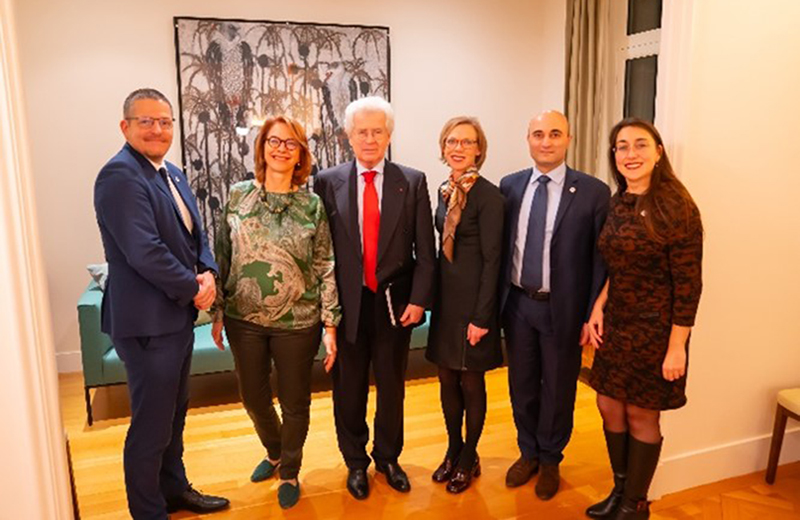
from l. to r. : Dr J-M. Rickli, Amb. M. Berset-Kohen,
Amb. J-D. Levitte, Ms I. Gillet, M. N. Hansma, Mme M. Frezouls
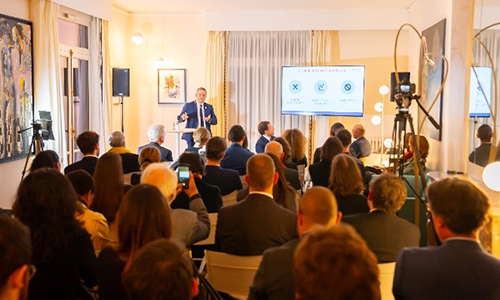 | 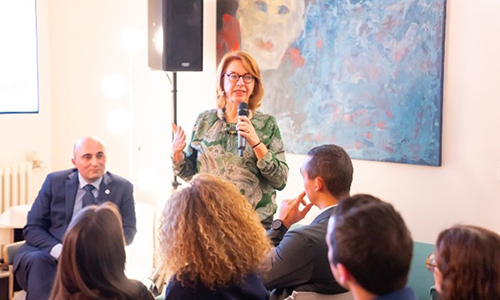 |
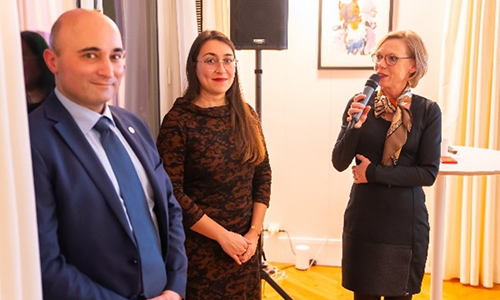 | 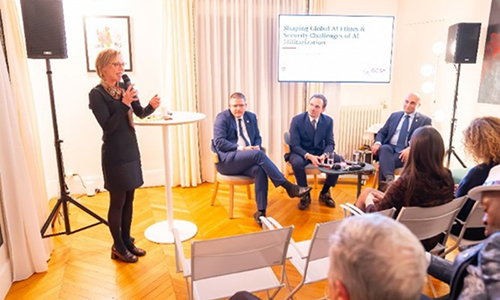 |
Isabelle Gillet is the Head of Alumni and Community Engagement and leads, develops, and organizes the Centre’s community programmes in Geneva and abroad, including community-led projects. She aims to facilitate mutually beneficial and sustainable relationships between the GCSP and its alumni community.
